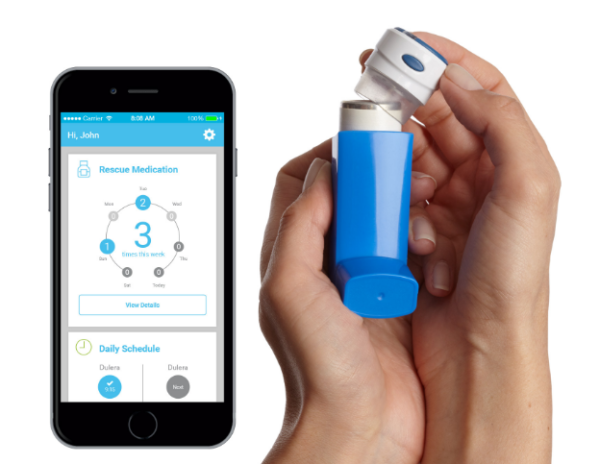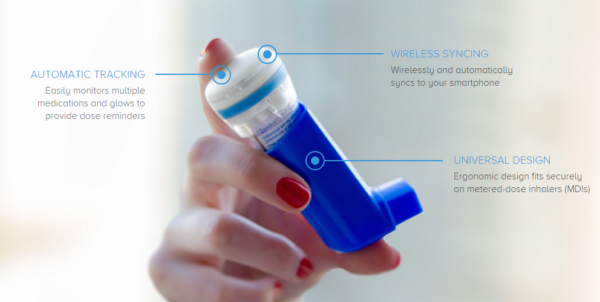I recall being really excited about sensor-enabled asthma inhalers several years ago. I even remember giving a presentation in 2013 on “the future of pharmacy†that included two such products: Asthmapolis and GeckoCap. Each was an add-on device for existing inhalers. They were marketed as tools for improving medication adherence, and by default helpful in controlling patient’s asthma symptoms. Each had a very different approach but were both pretty cool in their own way.
Asthmapolis is still around, as far as I can tell, but at some point, the product was rebranded as the Propeller Sensor by Propeller Health. The only reason I know this is because earlier this year the Propeller Sensor received FDA 540(k) clearance. I always thought the approach used by Asthmapolis was interesting because the product utilized crowed-sourced data to generate “Asthma risk maps†to help keep patients with asthma informed about potential hot zones in and around their area. It appears as though not much has changed. While the Propeller Health website doesn’t offer many details, a quick search of the web generated several articles that lead me to believe the mission remains the same. I’m still impressed with the Propeller Sensor and would love to see it in action sometime. It seems like it would be well suited for use by ambulatory care pharmacists.

The other product, a little doohickey known as GeckoCap was a glowing “smart cap†that used a blinking light and gamification to remind patients when to use their inhalers. Data collected by the device was transmitted to a database via Bluetooth connection where family members and physicians could access it. I thought the use of gamification was rather clever, especially for kids. Parents could set goals with accompanying rewards to encourage kids to remain compliant. In this day and age, that made sense to me.
Similar to Asthmapolis, it appears that at some point GeckoCap became CareTRx [pronounced care-tracks]. However, it doesn’t appear that the product is actively being developed at this time. The last few reviews on the Google Play Store included complaints about server issues, and those were from December 2015. Based on information at the CareTRx website, the company was acquired by Teva in September of 2015. I’m not sure what that means. I don’t know if the product is dead or alive.

I wonder why these products never took off? Seems like these little devices would fit right into the up and coming Internet-Of-Things era.